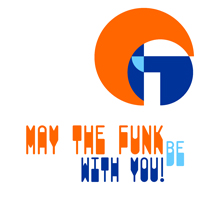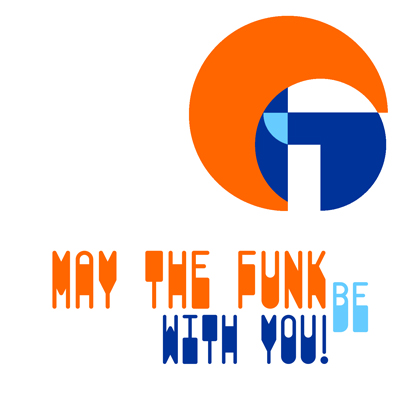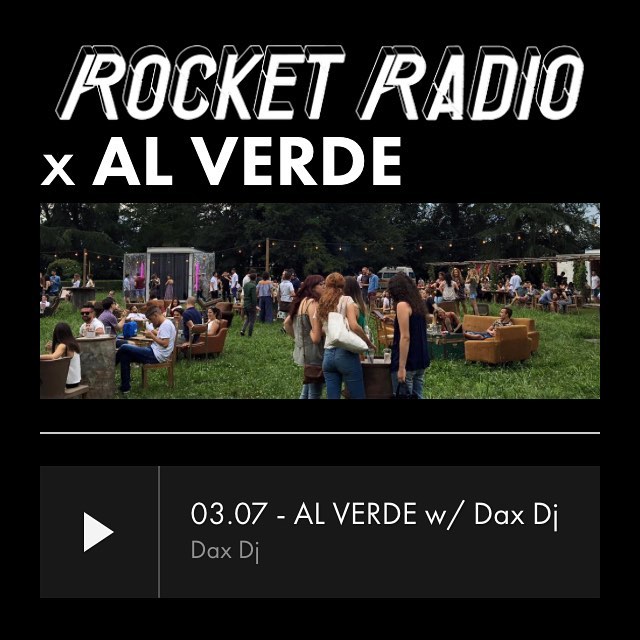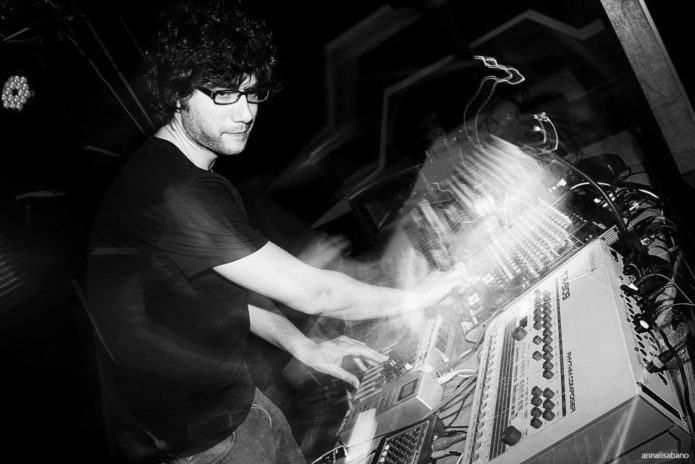Che sorpresa! Ecco il mio “Crazy” set di Pasquetta all’Aperitivo Al Verde! Disco, house, tribal, electro, italo-disco e l’#ultimodisco #chefico.. Non riuscivo proprio a stare fermo, indescrivibile! Grazie a tutti quelli che eran lì a ballare e urlare #lovesavestheday #daxdj
mixing
DOWNLOAD * DISCO MADNESS – ROCKET Radio #daxdj
http://rocketradiolive.com/
Per chi c’era e per chi non c’era: ecco il mixato di domenica 03.07.2016 Al Verde che introduceva Bjørn Torske .. #Disco orchestrale, silly vibes, tanta energia e delirio! C’è anche l’#ultimodisco speciale..
PS: come #primodisco mi sono permesso di mettere il mio #remix della sigla “Accendi Perarock” uscito in vinile #45giri
RA Photos Gallery
www.residentadvisor.net/photo-gallery.aspx?set=48000
Feat. On
www.theitalojob.com/dax-djset-aperitivo-al-verde-villa-caprera
MA Spaventi
IT/UK
Intervista a MA Spaventi
– Quando e perche’ hai deciso di trasferirti ad Amsterdam?
2007, dopo aver finito l’università, studiato ingengeria elettronica senza una vera e sincera convinzione, mi piaceva molto di più la musica e mi intrippavano gli aspetti tecnici dietro la registrazione, la produzione e l’uso del computer.
Qualcuno mi parlò della SAE, che sarebbe stata la scuola giusta per me per imparare. Solo che la SAE in Italia c’è solo a Milano, io da Roma a Milano non volevo andare, però all’estero si. La SAE all’estero in inglese c’è solo in Inghilterra e Olanda. Tra Londra, Rotterdam e Amsterdam non avevo dubbi su quale città scegliere: Amsterdam è perfetta per me, a misura d’uomo ma non risulta mai stretta.
– Quali sono state le tue principali influenze musicali?
All’inizio ascoltavo molto rock, rock 60 e 70, dai 15 ai 20 anni più o meno. Led Zeppelin, Deep Purple, Cream, Zappa eccetera. Suonavo le tastiere in un gruppo. Più che altro piano e organo hammond.
Poi mi sono intrippato con le sonorità jazz elettriche dei 70 e allo stesso tempo suoni più psichedelici, avevo iniziato a suonare con un altro gruppo e avevo iniziato ad interessarmi a suoni più processati, synth ed effetti.
Con questo gruppo le cose si son fatte più serie, avevamo iniziato a registrare in studio ed avevo iniziato ad interessarmi VERAMENTE all’ambiente di studio!
Poi ad un certo punto un amico mi ha passato una cassetta di Unit Moebius (Bunker-DenHaag) ed è stata una gran rivelazione, suoni che non avevo mai sentito, atmosphere e funk incredibili! Li è stato quando mi sono avvicinato alla musica elettronica, house, techno e sperimentale. All’inizio era più che altro una gran confusione nella mia testa. Ci ho messo un pò di anni a capire i suoni e come combinarli insieme.
Però nello stesso tempo accumulavo strumenti e lo studiolo in camera da letto prendeva forma, come con tutti all’inizio.
Questo è quando più o meno mi son trasferito in Olanda. Dopo di che è stata una crescita continua, grazie alla SAE e al fatto che in Olanda si trovano strumenti vintage molto più facilemente che in Italia, qui hanno proprio il culto!
La cosa simpatica è che son partito dai produttori underground olandesi come ispirazione massima e poi ci sono arrivato veramente vicino, perchè ora li conosco più o meno tutti di persona!
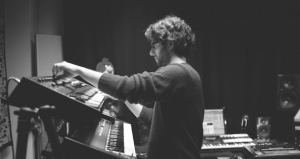
– Differenze/affinita’ tra MA Spaventi sound eng. e MA Spaventi produttore musicale.
Le due cose si complementano parecchio.
Essere ingegnere del suono richiede parecchia sensibilità artistica, così come essere artista richiede un certo bagaglio tecnico, quindi a me fan comodo entrambi. Però devo dire che mentre approcciare la musica dal punto di vista tecnico mi risulta più o meno facile, scordare la parte tecnica invece e lasciare andare la creatività è molto più difficile.
Adoro entrambe le cose comunque!
– In qualita’ di esperto, pro/contro di tools analogici e tools digitali.
Argomento scottante questo! Specie oggigiorno che sembra che solo colle macchine si possa fare musica decente. Una delle migliori release su cui ho fatto il mastering qualche anno fa mi pareva tutta analogica, suonava proprio da paura, beh ho indagato un pò e risulta che tutto era prodotto in reason!! Sti cazzi!
Comunque, il discorso non è quello che si usa ma come lo si usa. Poi sia il mondo analogico che il mondo digitale hanno i loro pro e contro.
Per esempio per la produzione io adoro le macchine perchè mi danno più il feeling da strumento musicale, però allo stesso tempo non potrei fare senza computer, per via di come lavoro, per via del fatto che ci registri tutto dentro, che puoi iniziare una sessione e finirla dopo sei mesi. Sopratutto il fatto di poter registrare multitraccia e le possibilità di editing e sound design spaccano.
C’è solo una cosa su cui odio il computer con tutto me stesso, il sync!! E’ sempre un problema. Che palle quando c’hai tre o quattro macchinette insieme e schiacci play sul computer e tutto parte in ritardo. Accendo l’mpc e synco con quello e tutto va na meraviglia. L’ultimo crystal maze infatti, stressati, abbiamo usato tutto in sync hardware, na bomba, il computer funzionava solo come multritrack, solo che poi, buona fortuna con l’editing fuori griglia e auto snap! 😀
Alla fine lo so che investirò sti 500 euri per farmi il sync gen interlock…
– In qualita’ di mastering eng. cosa consigli a chi ti potrebbe consegnare un pre-mastering?
Quello che tutti gli ingegneri di mastering consigliano, lasciate headroom!!! Alla fine suona sempre meglio!
Interview with MA Spaventi
– When and why did you decide to move to Amsterdam?
I did it in 2007, after completing my University degree. I studied Electronic Engineering even though I wasn’t particularly fond of it, while I was much more interested in music and in the technical aspects behind recording, production and computer use. Somebody talked to me about SAE, a school that would have fitted my purposes of learning more about these subjects, but the problem is that the headquarter for Italy is only located in Milan, and I didn’t want to move up there from Rome. Still, I was willing to go abroad though.. So the choice was between London, Rotterdam and Amsterdam, and at that point I didn’t have the shadow of a doubt! Amsterdam is perfect for me, comfortable and with a high quality of living.
– Which music trends have influenced you the most?
When I was 15 to 20 years old I mainly used to listen to rock music from the 60ies and 70ies, like for instance Led Zeppelin, Deep Purple, Cream, Zappa. I was also playing keyboards in a band at that time, mostly piano and Hammond organ. Then I started to get fascinated by jazzy electric kind of music from the 70ies as well as psychedelic sound. I was playing with another band at that point and got interested in more processed sounds, involving synths and a variety of effects. With this new group things became more serious, we started going to a recording studio and there I realized I was REALLY captivated by that environment. Later on, a friend of mine handed me a tape of Unit-Moebius (Bunker-DenHaag) and that has been a huge revelation, presenting me with sounds that I had never heard of before and extraordinary funk atmospheres. Since then I started being involved into Electronic, House, Techno and Experimental Music. In the beginning everything was mainly a confused hodgepodge inside my head.. It took me quite a few years to really understand sounds and how to combine them properly. As it often happens, I kept on gathering instruments and so the little studio in my bedroom started to take shape. At that point, more or less, I moved to the Netherlands, and since then I have been growing as an artist thanks to the SAE and to the fact that here in the Netherlands vintage instruments are much more valued and easier to find than in Italy. The funny thing is that the Dutch underground producers used to be the foremost inspiration for me, while right now I can say I know personally most of them.
– Differences/Similarities between MA Spaventi eng. and MA Spaventi music producer.
These two aspects are really complemental to one another. Being a sound engineer requires a strong artistic sensitivity, as well as being an artist entails specific technical abilities, so as a matter of fact I use the help of both. Honestly though, I can say that while I can easily approach music with a technical perspective, it is much more difficult for me to completely forget about the technical sides and let creativity express itself freely.
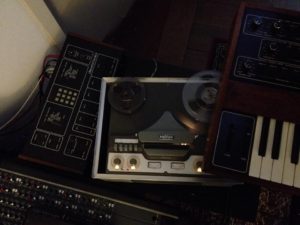
– As an expert, what do you think are the pros and cons of analogical vs digital tools?
This is such a hot topic, especially nowadays, as most people think that only by using machines you can make good music. Well, a couple of years ago I did the mastering of one of the best releases of 2012. I thought it was completely analogical as it sounded amazing. So I did some research and I found out that everything was done on Reason! I believe that it’s not what you use that makes a difference but how you use it, and anyway, both the analog and digital devices have their pros and cons.
For instance, when I create my music I prefer the machines because the feeling is very similar to that of real music instruments. At the same time though I would never go without my computer, because of the way I’m used to work and because you can record and keep everything in there, starting a track today and finishing it six months later. What I like the most about computers are the multitrack recording and the features offered by editing and sound design.
There is just one thing that I can’t stand about computers, the sync! Always a troublemaker.. I hate it when you are working with three or four machines at the same time and you hit play on the computer and everything starts late! I turn on the mpc and I sync everything with that and everything runs smooth. Working on the last Crystal Maze we ended up being very stressed and decided to do everything in sync hardware, with a great result. The computer was only used as a multitrack, but then good luck with no auto snap edit!
– As a mastering engineer, what would you suggest to somebody who would like to give you a premastering?
What all the mastering engineers advise, that is, to leave Headroom! At the end it does always sound better!
Interview by Eudosia Luxemburg Crispy, translated by Camilla Family House
